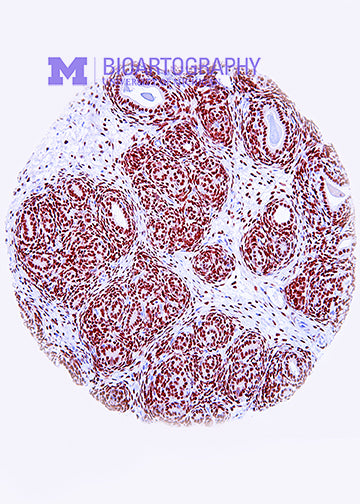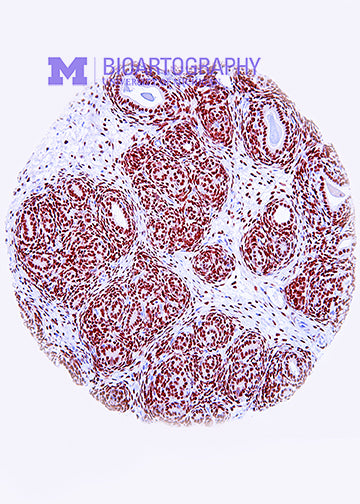

Diane Robins, Ph.D., Professor, Department of Human Genetics, University of Michigan Medical School
The prostate gland contains many ducts that secrete seminal fluids; the lumen of each duct surrounded by a single layer of epithelial cells. With age and mutation, these epithelial cells may lose their normal growth control and become cancerous. This process can be effectively studied in mice. Shown here is a section through a mouse prostate tumor. Some normal glands remain (orderly epithelial cells surrounding a lumen) but most cells appear disorganized and have over-grown their normal orderly patterns. Studies in mouse models of tumorigenesis are offering unique insights into genetic and hormonal factors in cancer initiation and progression that ultimately may translate to advances in the treatment of human prostate cancer.
